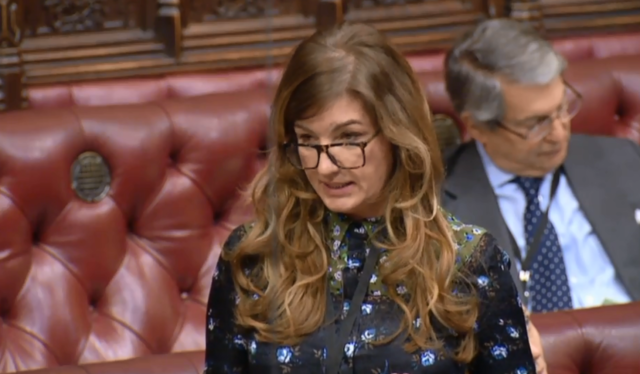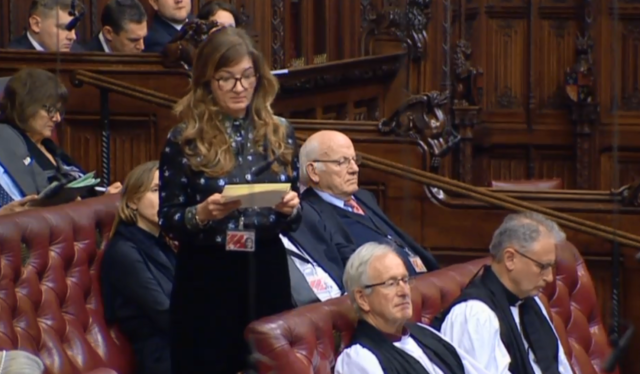Karren Brady condemns ‘unjustifiable’ aid spending on ‘far-flung conflicts’
Conservative peer Baroness Brady instead suggested using the money to boost defence spending to help ‘secure the peace’.

Karren Brady has hit out at the “unjustifiable” £14 billion spent on “ill-thought-out and poorly executed” UK aid policy.
The Conservative peer criticised the “arbitrary” target to spend 0.7% of national income each year on aid, particularly given that the UK pays billions of pounds each year servicing the national debt.
The Apprentice star and entrepreneur also said it is “impossible to justify” spending taxpayers’ cash on “far-flung conflicts” where it is difficult to identify their impact or relevance to the UK.

The peer suggested infrastructure development and supporting a path to democracy in these countries would be done by others.
Lady Brady’s remarks came during the annual Lords debate led by the Archbishop of Canterbury, which this year focused on the role of reconciliation in British foreign, defence and international development policy.
Lady Brady said reconciliation is a “necessary condition” for lasting peace, stability and prosperity, adding it will also help meet the ambitious targets set by the United Nations via its sustainable development goals.
But she told the Lords: “Whilst this country – global in outlook as it is – will surely play a role in helping meet those UN goals, the central point I want to make today is that the role is a narrow one and that reconciliation is unlikely to be part of it.”
Lady Brady said she could see a role for faith-based organisations during and after conflict, given that the rule of law may have broken down.
She added: “I do not though see a similarly prominent role for the UK Government and its aid budget. This is for two related reasons.
“The first is that it’s impossible to justify the use of taxpayers’ money on such far-flung conflicts where their impact or relevance to the UK is all but impossible to identify.
“The second is that whenever we take on such broad and ambitious tasks, our track record is poor and we risk doing more harm than good.”
She pointed to criticism of the UK’s Conflict, Stability and Security Fund, adding: “I won’t go into depth on the aid budget more generally – suffice to say that when we are paying £50 billion a year in interest servicing our national debt, spending £14 billion a year on ill-thought-out and poorly executed aid policy in the name of an arbitrary spending target I find unjustifiable.”

She said this was better done through defence work than international development, noting: “The 0.7% aid budget should be re-purposed to help us deliver our 2% defence spending commitment under Nato.
“It may not burnish our so-called soft power credentials as much but it would be much more effective in the long run – for us, for the conflict zones in question and surely that is more important.”
Archbishop of Canterbury Justin Welby rejected Lady Brady’s argument, describing it as a “too linear and siloed approach”.
Defence minister Earl Howe, wrapping up the debate on behalf of the Government, also challenged Lady Brady’s view.
He said: “Our aid budget is vital to ensure we tackle the great global challenges from the root causes of mass migration, disease to the threat of terrorism and global climate change, all of which directly threaten the UK’s national interests.”





